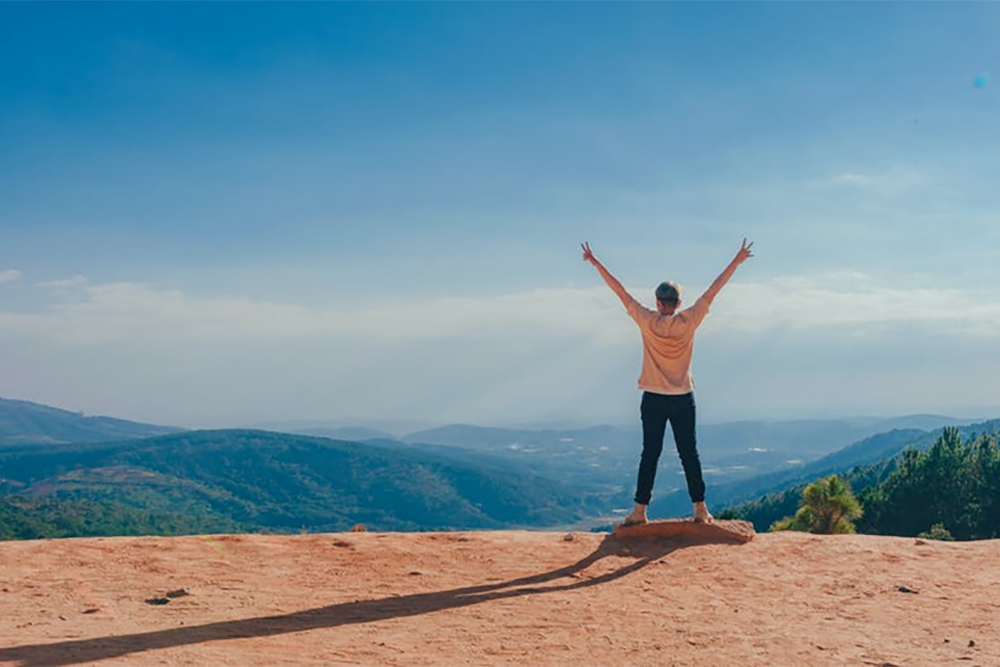The Camino Lessons

In 2008, when my sister Catherine asked me “would you like to walk the Camino de Santiago with me?”, “yes, I’d love to” flew out of my mouth. Although I knew little about it, my heart immediately soared at the thought of shutting my office for five – six weeks, running away to Spain, and having an adventure.
We didn’t know the walk would be so transformative, yet along the way we discovered six Camino lessons that remain precious touchstones to this day.
The Camino de Santiago is an ancient 800km trail across the North of Spain. It crosses the Pyrenees and the North of Spain, and finishes on Spain’s West Coast, in Santiago de Compostella. Pilgrims (peregrinos) stay in Albergues de Peregrinos (often called refugios or hostales), private hostels or hotels along the way.
The Camino’s origins included paganism, druidic rituals, and the worship of Venus until the Christian Church emerged, and the focus shifted to St James, one of Christ’s disciples.
Walking the Camino isn’t for the faint-hearted. It involves walking on the flat, up and down hills, steep assents and declines, carrying a pack (there are options to have packs taxied/bussed to the day’s destination point), and walking in all weather conditions.
The Camino is a clarion call for the adventurous and/or brave hearted; for those needing time out from their everyday lives to simply ‘be’ for a while; and for those who simply want a long walk in the countryside and explore a piece of Spain at leisure.
In our everyday working and professional lives, we like to dress well, wear clean clothing, good shoes and earrings. We enjoy our own homes, bedrooms with clean sheets, a well-functioning clean bathroom, toilet paper and privacy.
On the Camino, we needed to ‘get over ourselves’ quickly, as toilets were sometimes hard to find; privacy was out of the question in some albergues, and other peoples’ personal habits and ways of being in the world were vastly different to ours.
This applies equally when back home, in the workplace or when out with family/friends. Everyone is different. If we don’t feel comfortable about something, we need to get over ourselves. We can’t change others. We need to adapt.
Foresight and optimism are good travelling companions. Hindsight is invaluable after an event, as it showed us what we could have done differently.
On the Camino, no amount of assorted foot creams, liberal lashings of Vaseline, toe protectors, and assorted gauze dressings stopped the inevitable: swollen feet, peeling red toes, and a hobbling, listing, limping gait. We hadn’t factored in any rest days.
This applies equally back home in our working and professional lives. If we don’t look after ourselves, in the first instance, we can’t expect others to do it for us. It is our responsibility.
Walking many kilometres each day with a pack on your back is an obvious sign you are on a journey.
On the Camino, one’s inner personal journey is less obvious. Walking each day allows your mind to wander at will; to reflect on the ups and downs of your life to date; and to have space to think of what you may want to do next/or not do/or become, in time.
This applies equally back home in our working and professional lives. We need time for quiet reflection and personal space to do an audit of ourselves; to ‘spring clean’ parts of ourselves that don’t serve us anymore; and to ‘declutter’ our minds from anything we may be holding onto, that no longer serves us.
Have you ever noticed how your mind quickly hops from one topic to another to another, without you realising it had done so?
On the Camino, particularly in the first week, it takes some days for the mind to really settle down and stop thinking about things at home or at work. Eventually, your attention stays focussed on what you are doing, where you are going, the sights and sounds around you, and revelling in new experiences.
This applies equally back home in our working and professional lives. We need to notice when our mind wanders off topic, bring it back to the present moment, and take regular breaks throughout the day to keep the mind and body energised.
If you are a known ‘giver’ of your time, expertise and support to others, you may not be a gracious ‘receiver’.
On the Camino, we met big-hearted, generous fellow pilgrims: if someone ran out of water or food, other pilgrims offered some of their supplies; if a pilgrim hurt themselves, other pilgrims offered their aid and medical kits; if pilgrims got lost, there were others around to redirect them onto the right path.
This applies equally back home in our personal and professional lives. We need to recognise the many ‘gifts’ others freely give us; and in turn, to do the same for others.
If you are used to doing everything yourself, you may find it difficult, if not impossible, to ask for help when required. You may not want to bother others, so you get stuck in, regardless of the size of the task and situation.
On the Camino, we asked for help many times: directions to the albergue, the bus stop, the chemist, and for the way out of a village. Complications arose when the person we were speaking to spoke only Spanish, and as we spoke only English, we got by with greetings (Ola), farewells (Adios), and mimed questions through pointing, waving arms and laughter.
This applies equally back home in our personal and professional lives. We need to learn to ask for help when we need it. It isn’t a sign of weakness, but a sign of strength. It may take practise, before it becomes the norm.
|





